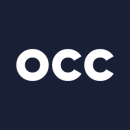
A tangible diversity, equity and inclusion (DEI) strategy is a great step toward making the workplace reflects those ideals.
But hiring a leader whose job is to give constant attention to a company’s DEI efforts can legitimize the undertaking and ensure it doesn’t fall by the wayside. That was especially the case for financial technology company OCC and Carla Dawson, its chief human resource officer.
“While we have always embraced diversity through welcoming people from all backgrounds, it became clear that we needed a person dedicated to our strategy and programs to increase engagement,” Dawson said.
Recently, Built In Chicago sat down with Dawson and Pat Vihtelic, the founder and CEO at meal kit and delivery service Home Chef, to learn when they knew it was time to hire a dedicated, full-time DEI leader.
Dawson and Vihtelic share how their respective DEI leader’s positions came about, the qualities they looked for when interviewing potential candidates and the role executive leadership played throughout the process.
Home Chef Founder and CEO Pat Vihtelic said that the racial injustice on full display in 2020 prompted the company to create a DEI council. But leaders at Home Chef quickly realized a full-time leader was needed to see its DEI strategy through.
How and when did you know it was time to hire a dedicated, full-time DEI leader to your team?
We started an in-depth dialogue with our team following the tragic loss of George Floyd. Since founding Home Chef, I’ve never seen our team more engaged on a topic and it quickly became clear that we have a lot of catching up to do as an organization. We immediately brought on some industry-leading consultants to help guide the journey and turned to our team to form a cross-organizational DEI council, where we formed our DEI vision and strategic roadmap.
While our team was making headway, it was obvious we needed a full-time, dedicated DEI leader to spearhead the effort so that we could effectively bring together all of the voices across the company while also accelerating our efforts to make meaningful changes in our approach to DEI. We’re excited to have had Jasmine Primm join our team this January 2021 as our director of diversity, equity and inclusion.
What are the key skills you look for in a DEI leader? Why are those skills so important for this person to have?
It was important for us to bring on a DEI leader with experience, both in DEI as well as working in a fast-paced environment. While being thoughtful, it was important for us to find someone who can move quickly with our organization to implement the holistic changes necessary to live up to our DEI vision. We are hearing a lot from our team, from both our corporate and plant locations, so it was also crucial to find someone who can work across the organization in a collaborative way with many stakeholders.
We needed a dedicated DEI leader to spearhead our efforts to effectively bring together all of the voices across our company.”
How do you ensure this person has the support and buy-in from senior leadership (and the company) to be successful and effective in their role?
For starters, I think it’s important for the executive team to be involved in our DEI journey. As CEO, I’m the executive sponsor for our DEI council and played an active role in our recruiting process for our DEI leader. I also make sure that our company-wide goals and strategy are supporting our DEI efforts so that we can continue to make progress. Prioritization and communication across the organization are key.
OCC’s Chief Human Resources Officer Carla Dawson said that the company’s growth prompted leaders to seek out a DEI leader who would bring strategies and programs to the forefront of the business.
How and when did you know it was time to hire a dedicated, full-time DEI leader to your team?
OCC has grown rapidly since becoming designated a Systemically Important Financial Market Utility (SIFMU) in 2012. While we have always embraced diversity by welcoming people from all backgrounds, it became clear that we needed a person dedicated to our strategy and programs to increase engagement.
Since we created this role a few years ago, we have successfully developed a recruitment strategy that aligns diversity and inclusion with OCC’s mission, purpose and values, and launched employee resource groups for women and African Americans. We have also implemented training on diversity and inclusion (D&I) topics as well as hosted a speaker series, events and workshops to help increase our cultural competence and inspire a culture where everyone feels a sense of belonging.
It’s critically important that D&I be embedded in the organization’s mission or value statement in order to create a sense of accountability and visibility.”
What are the key skills you look for in a DEI leader? Why are those skills so important for this person to have?
To succeed, a person has to be comfortable driving change and communicating that change across the organization. Because the role helps to drive our culture of inclusion, we look first for the ability to build a network, experience in advancing culture initiatives and programs, and strategic planning acumen.
We think it helps to have a record of success in managing large-scale change projects and nurturing effective partnerships as well as experience in working with external relations, communications and development.
How do you ensure this person has the support and buy-in from senior leadership (and the company) to be successful and effective in their role?
First, understand the “why” and then develop the business case for D&I. We think it’s important for this to start at the highest level of leadership such as the board of directors or executive leadership.
Secondly, senior leadership must be involved in the recruitment and hiring process of a DEI leader. It’s also critically important that D&I be embedded in the organization’s mission or value statement. This helps create a sense of accountability and visibility across the organization.
It’s also helpful to adopt DEI policies re-affirming commitments and highlighting goals of D&I efforts aligned with the recruiting of people from underrepresented groups. We are adding specific corporate goals tied to these initiatives to ensure we hold ourselves accountable for creating and maintaining a diverse and inclusive workplace.
Lastly, it’s imperative to engage senior leaders in continuous conversation on topics in this area. At OCC, our executives sponsor and advise our ERGs. We’ve also created a series of leadership panels honoring cultural events, such as Hispanic Heritage Month and Diwali, in which senior leaders share their experiences as members of different ethnic groups.








